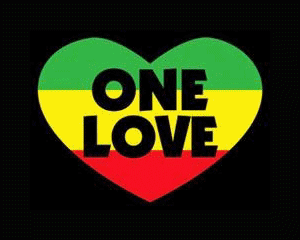"Venus Project"
- Admin
- Mar 14, 2018
- 4 min read
Global civilization for which the "Venus Project" is committed will not use the monetary economy, but a new, resource-based economy. Is it possible to create a new world without corruption, war, poverty, crime and waste? Futurist Jacques Fresco believes it is possible.
He presented his ideas on re-planetization of the planet Earth within the project "The Venus Project". He claims that money is not needed! The "Venus Project" is re-designing the current culture, and creating a global civilization that will not have wars, hunger, poverty, crime, or even hatred of one another. The global civilization for which the "Venus Project" advocates will not use a monetary economy, but a new, resource-based economy. In such a system, even human labor would not contribute to the process of extraction, production and distribution, nor would it be used as a service.
Instead of a price mechanism, a resource-based economy uses cybernetic technology, which replaces human work in all branches of business. Jacques Fresco believes that it is possible to replace people in the work of any deal with automated systems. It emphasizes that we have enough energy and resources and that our needs today could be met. Cities of the Future Intelligent resource management includes new energy-efficient cities. When designing future cities, Fresko came to the conclusion that the most cost-effective and most attractive cities are circular shapes.
He also adds that it is more profitable to build cities as a whole. According to his design, a dome would be built in the center of each city where the main computer, schools, health centers, etc. would be located. Transport would be carried out vertically, radially and in line with single railways. The center around the center would be a place for research, science, music and entertainment centers. The next belt contains housing objects. The houses would be separated by lakes and trees. Then, followed by an agricultural rhythm, and then a rectangular belt, which would contain parks and sports grounds.
Below the city there would be a network of canals that would deliver water, electricity and heat. These channels would also serve to drain waste and waste that would later be recycled. All buildings and houses would be built automatically.
Cities, depending on location, would use wind energy, solar energy, wave and sea currents, as well as geothermal energy. Cities at the seas When designing the cities of the future, Fresko went so far as to suggest the construction of cities on the surface of the sea. Such cities would have different functions from breeding marine life to the exploitation of natural resources of the sea and the ocean. These cities would be university cities where subjects such as oceanography would be studied. Cities at the sea would also be floating hospitals. It is estimated that about 50 million people know about the "Venus Project".
Fesko and his visions were the themes of numerous films and documentaries.
Globalna civilizacija za koju se "Projekat Venus" zalaže neće koristiti monetarnu ekonomiju, već novu, ekonomiju zasnovanu na resursimaDa li je moguće stvariti novi svet bez korupcije, rata, siromaštva, kriminala i otpada? Futurista Žak Fresko smatra da je moguće. Svoje ideje o reogranizaciji planete Zemlje predstavio u okviru projekta "Projekat Venus" (The Venus Project). On tvrdi da nam novac nije potreban! "Projekta Venus" je ponovno dizajniranje sadašnje kulture, i stvaranje globalne civilizacije u kojoj neće biti ratova, gladi, siromaštva, kriminala, pa čak ni međusobne mržnje. Globalna civilizacija za koju se "Projekat Venus" zalaže neće koristiti monetarnu ekonomiju, već novu, ekonomiju zasnovanu na resursima. U takvom sistemu, ni ljudski rad ne bi doprinosio procesu ekstrakcije, proizvodnje i distribucije, niti bi se koristio u vidu usluga. Umesto mehanizma cene, ekonomija zasnovana na resursima koristi kibernetsku tehnologiju, koja zamenjuje ljudski rad u svim granama privrednih delatnosti. Žak Fresko smatra da je, moguće zameniti ljude, u radu bilo kog posla automatizovanim sistemima. Naglašava da imamo dovoljno energije i resursa i da bi naše potrebe danas mogle biti zadovoljene. Gradovi budućnosti Inteligentno upravljanje resursima uključuje nove energetski efikasnije gradove. Prilikom dizajniranja budućih gradova, Fresko je proračunima došao do zaključka da su najisplativiji i najpraktičniji gradovi kružnog oblika. Takođe, on dodaje da je isplativije graditi gradove kao celine. Prema njegovom dizajnu, u centru svakog grada bi bila izgrađena kupola u kojoj bi se nalazio glavni kompjuter, škole, zdravstveni centri, itd. Transport bi se vršio vertikalno, radijalno i linijski pomoću jednošinskih železnica. Pojas oko centra bi bio mesto istraživačkim, naučnim, muzičkim i zabavnim centrima. Sledeći pojas sadrži stambene objekte. Kuće bi bile odvojene jezirima i drvećem. Zatim, sledi poljoprivredni pojac, pa rektreativni pojas, koji bi sadržao parkove i sportske terene. Ispod grada bi se nalazila mreža kanala pomoću kojih bi se dopremala voda, struja i toplotna energija. Ti kanali bi takođe služili za odvod smeća i otpada koji bi kasnije bio recikliran. Sve zgrade i kuće bi se gradile automatski. Gradovi bi, u zavisnosti od lokacije, koristili energiju vetra, solarnu energiju, energiju talasa i morskih struja kao i geotermalnu energiju. Gradovi na moru Prilikom dizajniranja gradova budućnosti, Fresko je otišao toliko daleko da je predložio izgradnju gradova na površini mora. Takvi gradovi bi imali različite funkcije od uzgajivanja morskog života do eksploatacije prirodnih resursa mora i okeana. Ti gradovi bi bili univerzitetski gradovi u kojima bi se izučavale teme poput okeanografije. Gradovi na moru bi takođe biti plutajuće bolnice. Procenjuje se da oko 50 miliona ljudi zna za "Projekat Venus". Fesko i njegove vizije bile su teme brojnih filmova i dokumentaraca.






































































































































Comments